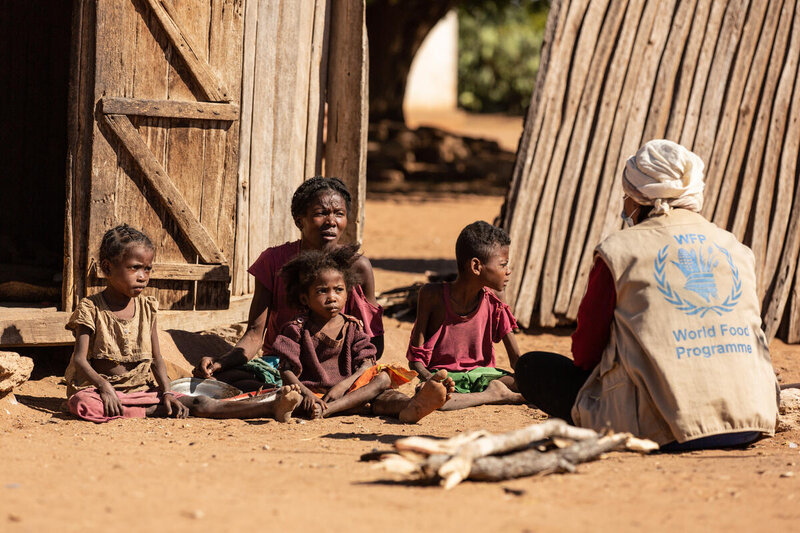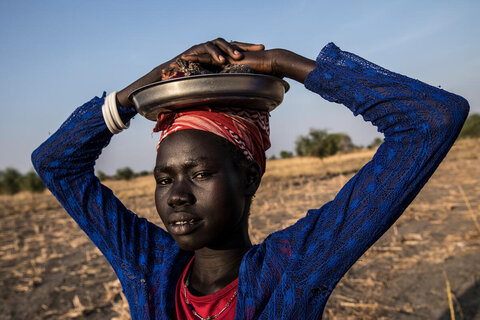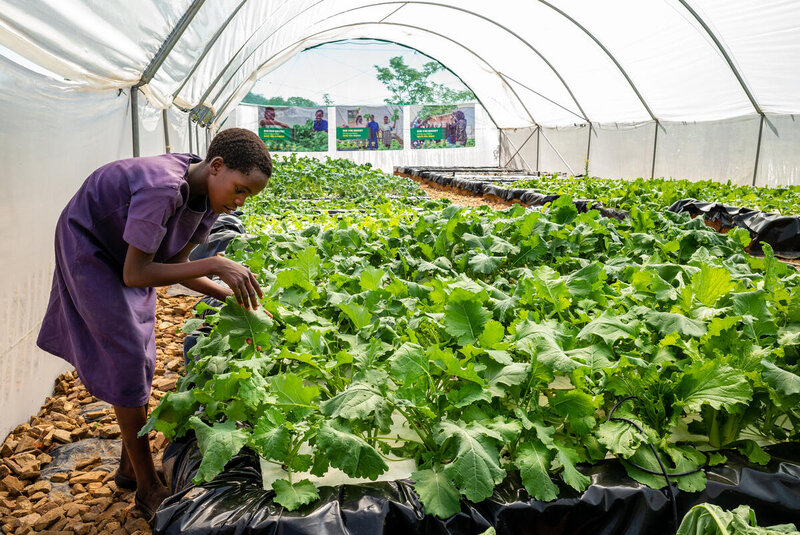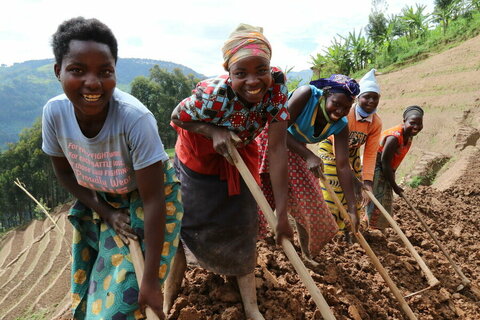COP26: ‘To fix the climate crisis we must address broken food systems’

Our food systems are breaking the planet – and the climate crisis is breaking our food systems. These are two of the biggest and most complex problems the world is facing today, and subject to the two biggest conversations the UN's organized in 2021.
At the UN Food Systems Summit in September, the World Food Programme (WFP) issued a wake-up call: 811 million people are going to bed hungry in countries where food systems are unequal, strained or broken.
The summit has put food systems into a wider context, recognizing the globalized and wide-ranging impacts we generate by producing, processing, transporting and consuming food the way we do. These impacts reach deep into our global climate system, and require us look at food systems through the prism of climate change adaptation and mitigation.
COP26とは?初心者のための国連気候変動サミット

Extreme weather events such as heatwaves, storms, floods and droughts impact food access and stability. Climate stresses such as untimely rainfall, irregularity in changing seasons, rising salinity in soils and groundwater, pest infestations and diseases, and heat stress in crops and livestock, undermine food production and affordability. Once food systems are strained by climatic, social or economic tensions, even smaller disruptions can cause them to break down and make people dependent on external support.
Food systems and the global climate are connected in other ways, too. Today’s food systems cause up to a third of global greenhouse gas emissions, which accelerate global heating. This heating then boomerangs in the form of climate extremes which break supply chains, drive food prices and, in many countries, hunger and malnutrition.

Throughout its engagement with the UN Food Systems Summit, WFP took a stand advocating that food systems should become a more integral part of the conversation about climate action, and that climate action should be seen as an opportunity to transform unsustainable and vulnerable food systems into more resilient and equitable ones.
Yet, as more than 190 countries come together in Glasgow for the 26th Conference of Parties to the UN Framework Convention on Climate Change, the topic of food systems is yet to make it into the mainstream conversation at UN climate meetings.
Everything you need to know about FOOD SYSTEMS, how they can avert famine and help end hunger

In their luggage, delegates will carry different positions, plans, approaches, and expectations to keep global heating under 1.5°C and adapt to the impacts of a rapidly changing climate. But not all of them will see food systems as part of the solution.
Over the past year, WFP has engaged in a strategic dialogue with host governments in about 40 countries on how to strengthen the management of climate risks in food systems. Depending on the context, this has involved the use of climate risk insurance solutions for smallholder farmers, and preventive action based on weather forecasts before local communities get hit by climate shocks. WFP has demonstrated models on how to provide tailored climate information to smallholder farmers, and how to apply sustainable cooking solutions in off-grid school meals programmes.
PODCAST: Click to listen to WFP's 'Better Food Better World' hosted by Elizabeth Nyamayaro
WFP Country Offices have demonstrated how losses and damages in food systems can be avoided – like in Bangladesh, where anticipatory cash transfers to 150,000 people ahead of some of the worst monsoon flooding in decades have enabled people to protect assets and move themselves and their livestock out of harm’s way.
Cash and warning information has reached vulnerable families several days before floodwaters did. As a result, households were 36 percent less likely to go a day without eating during the flood. The costs of the humanitarian response were cut in half; people could sustain their earning potential and did not have to borrow from the costly informal lending market.
With solutions such as this, WFP can connect the conversation about climate change adaptation with the conversation about food systems resilience. Food systems transformation, if done right, can accelerate climate action – and conversely, climate action can enable and sometimes even trigger food systems transformation. What it takes is awareness that the risks and problems we are facing in today’s world are globalized and interconnected – and that the solutions are, too.
